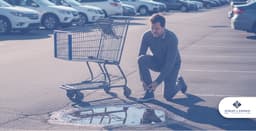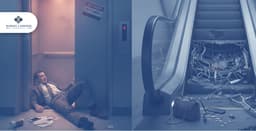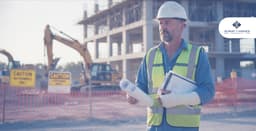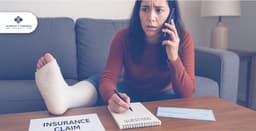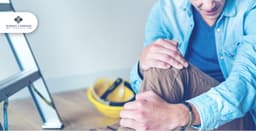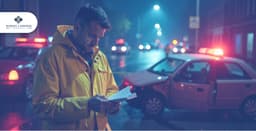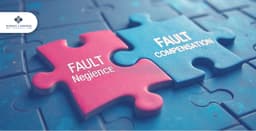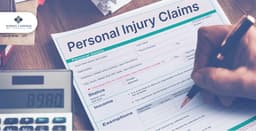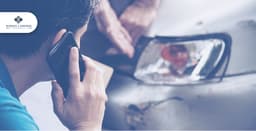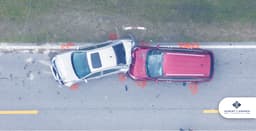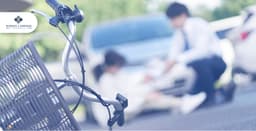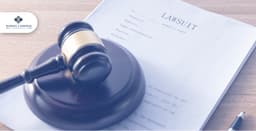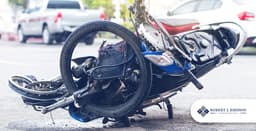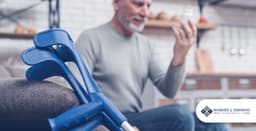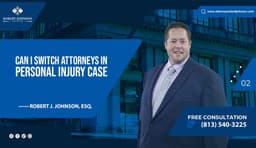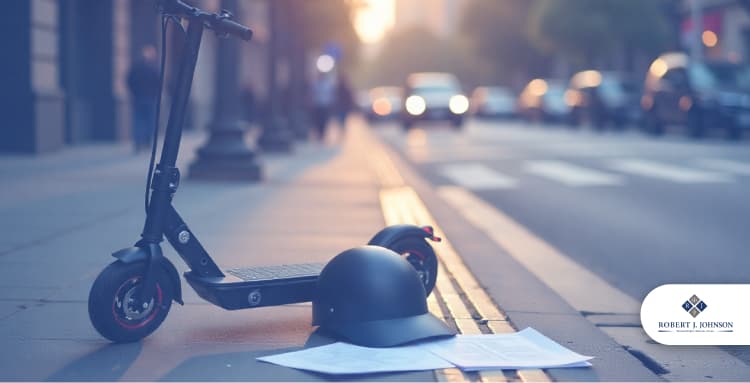
October 21, 2025
How to File a Personal Injury Claim for a Scooter Accident on a Sidewalk?
Did you know that scooters, once seen as a playful convenience, are now one of the fastest-growing causes of pedestrian accidents in Florida’s busiest cities? They are inexpensive, easy to rent, and convenient for short trips. However, their growing presence on sidewalks has created serious safety concerns. Pedestrians now share narrow walkways with fast-moving scooters, and it takes only a split second for an accident to occur.
These crashes often lead to painful injuries, from fractures and head trauma to long-term complications that can change lives. Despite how common these accidents have become, many victims do not know where to start when it comes to protecting their rights or seeking compensation.
Understanding what to do immediately after the accident could determine the success of your claim, yet most people miss this first critical step.
1) Know Your Rights After a Scooter Accident
In Florida, pedestrians generally have the right of way on sidewalks, while scooter riders are expected to operate their vehicles with caution and avoid endangering others. This means if a rider’s careless actions lead to a collision, they may be held responsible for the harm caused.
Florida law allows scooters on sidewalks in certain areas; however, only if they are operated safely. Riders must yield to pedestrians and maintain control at all times. When they fail to do so, the injured party has every right to seek compensation for medical costs, lost income, and pain and suffering.
Knowing these rights is only the beginning. The next step is understanding what you should do immediately at the scene to protect your claim and gather critical evidence.
2) Immediate Steps to Take at the Scene
What you do in the moments after a scooter accident can shape the outcome of your claim.
Call 911: Emergency responders can provide immediate medical care and create an official police report, which is an important piece of evidence for your claim.
Document the scene: Use your phone to take clear photos and videos of the scooter, the sidewalk, any hazards that may have played a role, and visible injuries. The more detail you capture, the stronger your case will be.
Collect witness information: Bystanders can help verify your account of the accident. Ask for their names and contact details before they leave.
Do not admit fault or argue: Even a simple apology can be misinterpreted as admitting blame. Stay calm and focused, and avoid heated discussions with the rider or others involved.
Seek medical care immediately: Some injuries, such as concussions or internal trauma, are not obvious right away. Visiting a doctor ensures your health is prioritized and creates a medical record that supports your claim.
After these steps, the next priority is identifying who may be legally responsible for the accident to build a strong claim.
3) Identify Who May Be Liable
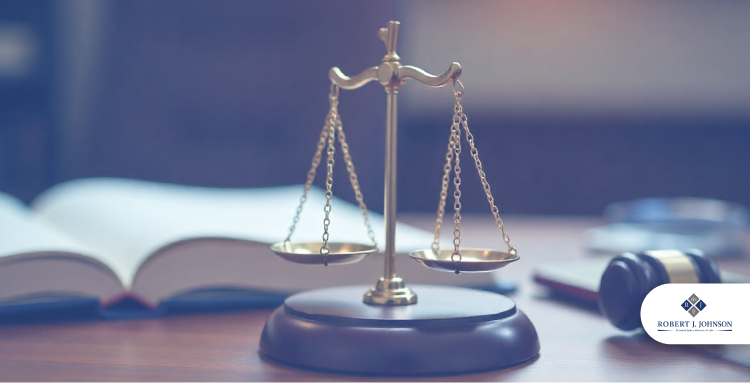
Determining liability after a scooter accident can be complex, as more than one party might be responsible. Identifying the right individuals or organizations is critical for pursuing fair compensation.
Scooter rider: If the rider was reckless, distracted, or failed to yield to pedestrians, they may be directly responsible for the accident and resulting injuries.
Scooter rental company: When a rented scooter is involved, companies may share liability if the scooter was poorly maintained, malfunctioned, or lacked proper safety instructions.
Municipality: Local governments can be held accountable if dangerous sidewalk conditions, such as uneven pavement, inadequate lighting, or lack of proper signage, contributed to the accident.
Other third parties: Drivers, cyclists, or even nearby property owners could also play a role, depending on how the accident occurred.
Negligence, or failing to act with reasonable care, is frequently the basis of liability. Under Florida’s comparative fault rules, responsibility can even be shared among multiple parties, which makes it crucial to act promptly since delays could directly affect the compensation you recover.
After determining who may be at fault, the next step is gathering the right evidence to support your claim and strengthen your case.
4) Gather the Evidence You Need
A strong personal injury claim relies on solid evidence to prove what happened and who is responsible, with the goal of creating a clear and undeniable picture of the accident and its impact on your life.
Police reports and medical records: These documents provide official accounts of the accident and your injuries. They can help link the incident directly to your medical treatment and recovery needs.
Photographs and witness testimony: Photos of the accident scene, the scooter, and your injuries, along with statements from witnesses, add valuable context and detail.
Rental company records: If a shared scooter was involved, maintenance logs or usage records can reveal whether mechanical issues or improper handling contributed to the accident.
Video surveillance or dashcam footage: Security cameras or nearby vehicles may have captured the accident, offering critical evidence to confirm how it occurred.
Robert Johnson’s legal team is skilled at tracking down and preserving this type of evidence before it disappears. Once this foundation is built, the next step is to formally file your personal injury claim and begin pursuing the compensation you deserve.
5) Filing the Personal Injury Claim
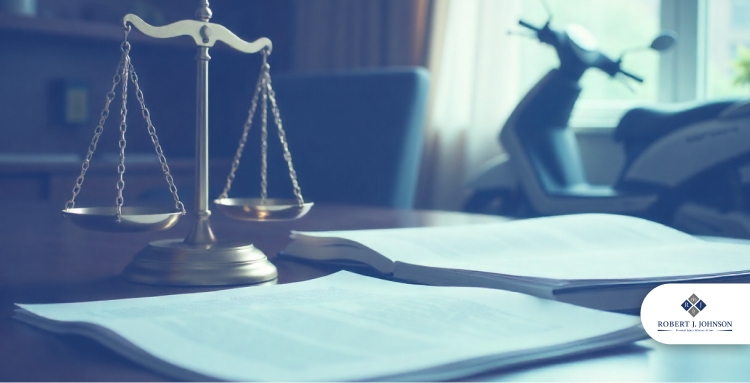
Once you’ve gathered the necessary evidence, the next step is to formally file your personal injury claim. In Florida, most scooter accident claims are filed through the local civil court system, either in the county where the accident occurred or where the defendant resides.
The process typically begins with a formal complaint that outlines the details of the accident, the injuries sustained, and the damages being sought.
Florida law sets a two-year statute of limitations for personal injury claims. If you miss this deadline, you may lose your right to compensation entirely, no matter how strong your case may be.
Insurance coverage plays a major role in how your claim unfolds. Depending on the situation, compensation may come from the scooter rider’s liability coverage. It could also come from the rental company’s corporate policy.
In some cases, if you were a pedestrian, your own Personal Injury Protection (PIP) may apply. Each scenario involves different rules and coverage limits, making legal guidance especially important.
When calculating damages, it’s not just about today’s medical bills. Your claim should reflect the full impact of the accident, including future treatment, lost income, pain and suffering, and any long-term changes to your quality of life.
Once the claim is filed, the next challenge is navigating the legal process, negotiating with insurers, and preparing for what comes next if a fair settlement isn’t immediately offered.
6) How a Personal Injury Attorney Can Help
The days after a scooter accident are often overwhelming. Medical appointments pile up, insurance adjusters call, and the uncertainty of what comes next can weigh heavily. This is where Robert Johnson steps in. With years of experience in both scooter and pedestrian accident cases, he understands the unique challenges victims face, from proving liability to calculating long-term costs.
Insurance companies rarely make things easy. Their goal is to pay as little as possible, and they have entire teams dedicated to that task. Robert Johnson’s firm levels the playing field. His team investigates every detail of your accident, gathers the evidence, and negotiates firmly for a settlement that reflects the true scope of your losses. If talks break down, they are ready to take the fight into the courtroom.
Perhaps most reassuring, Robert Johnson works on a no-fee-unless-we-win basis. That means you can focus on recovery without worrying about legal bills piling up.
Once legal representation is secured, the focus shifts to protecting your claim. Avoiding common mistakes in the days and weeks ahead can be just as important as the case itself.
7) Common Mistakes to Avoid
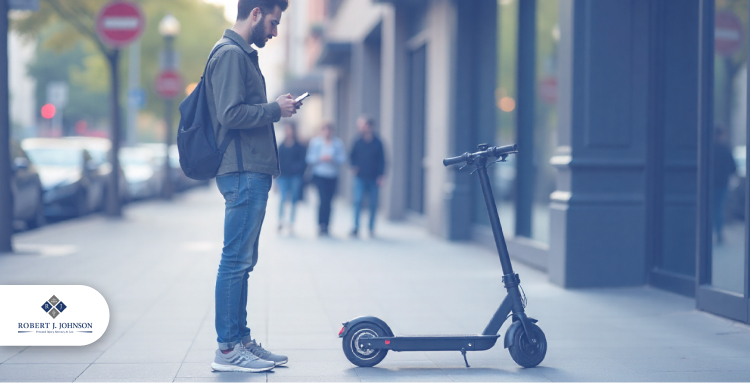
Filing a personal injury claim after a scooter accident involves careful steps, and missteps can seriously hurt your chances of fair compensation.
One of the most critical errors is missing important deadlines. Florida’s statute of limitations is strict, and failing to file your claim on time can bar you from recovery altogether.
Another common pitfall is speaking directly with insurance adjusters without legal advice. Insurance companies are skilled negotiators focused on reducing their payout, and anything you say can be used against you later.
Many accident victims also rush to settle too quickly, accepting offers far below the true value of their injuries and damages. Taking the time to understand the full extent of your losses before agreeing to a settlement is crucial.
Finally, delaying medical treatment can undermine your claim and put your health at risk. Even seemingly minor injuries should be promptly evaluated to document their connection to the accident and to begin appropriate care.
Avoiding these mistakes sets the stage for a stronger claim and a smoother process as you move forward with your case. The next step is understanding what to expect as your claim progresses through the legal system.
8) What to Expect During the Legal Process
Your case begins with a consultation to review the accident, assess your claim, and outline the next steps. From there, the team investigates by collecting evidence, reviewing medical records, and consulting experts. Once the case is prepared, a claim is filed within the required deadlines.
Most cases move into settlement negotiations with insurance companies, but if a fair resolution cannot be reached, the case proceeds to trial. While many sidewalk scooter accident claims resolve within a few months, more complex cases may take longer.
Having experienced legal support ensures your rights are protected at every stage.
Protect Your Rights with Robert Johnson’s Support
Facing the aftermath of a scooter accident can feel overwhelming, however you don’t have to navigate it alone. With the right legal support, you can focus on healing while ensuring your rights are fully protected.
Robert Johnson and his team are dedicated to guiding you through every step of the claims process, fighting to secure the compensation you deserve.
If you’ve been injured in a sidewalk scooter accident, take the first step today. Call (813) 540-3225 or fill out the online form for a free, no-obligation consultation. Your recovery and peace of mind are within reach.


